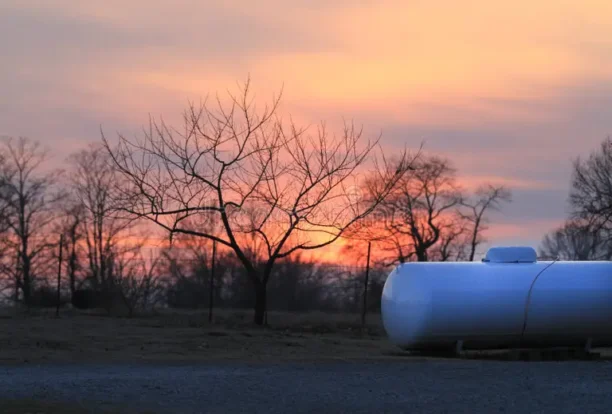Propane Storage and Safety Tips for the Fall Season

As the temperatures drop in the fall, propane storage and safety practices need to be adjusted for the changing weather. For propane business owners, preparing for these seasonal shifts is essential to keep operations running smoothly and ensure safety for both employees and customers. The fall season presents unique challenges, and understanding how to handle propane during this time can help avoid disruptions. Here’s what propane business owners should know about storage and safety in the autumn.
Adjusting Propane Storage for Cooler Weather
The outside temperature begins to cool during the fall, which affects propane pressure in storage tanks. Unlike in summer, where heat causes propane to expand, cooler temperatures cause it to contract. This pressure drop means it’s crucial to monitor tank levels more closely. If tanks are not filled adequately, lower pressure could affect the flow of propane, potentially causing delivery delays or issues with equipment that rely on propane.
Propane business owners must assess their inventory and ensure tanks are filled appropriately. Underfilled tanks can lead to operational issues, while overfilling tanks in cooler weather can create pressure problems once temperatures start fluctuating. It’s all about finding the right balance to maintain proper tank function during the fall season.
Proper Placement and Ventilation of Tanks
Even though the weather is cooler, it’s important to remember that propane tanks should still be stored in well-ventilated areas. Fall can bring unexpected warm spells, and tanks exposed to direct sunlight can still experience pressure changes. Keeping tanks shaded and stored in an area with proper ventilation ensures they stay safe throughout the season.
For propane business owners with ample storage facilities, regular inspections during the fall are essential to ensure that tanks remain in optimal condition. Any outdoor storage areas should be cleared of debris, like fallen leaves, which can create fire hazards. Ensuring your tanks are safely stored and accessible for refills or maintenance will help keep your operations running efficiently.
Fall Maintenance and Inspections
The fall season is an ideal time for maintenance checks. As propane equipment may have been used heavily during the summer, this transition period is perfect for inspecting tanks, valves, and hoses for signs of wear or damage. Catching potential problems early ensures that you avoid breakdowns or leaks during the busy winter months.
Propane business owners should prioritize checking safety relief valves and other equipment to ensure everything functions properly. Regular inspections help prevent minor issues from turning into significant safety risks. If your propane business provides services to customers, reminding them about fall maintenance for their propane systems can help build strong customer relationships and will offer greater protection for both them and their equipment.
Preparing for Increased Demand
Fall is a transitional season, but it marks the start of increased demand for many propane business owners. Propane needs typically rise as homes and businesses prepare for the colder months. Ensuring you have enough supply and the infrastructure to meet this demand is essential for smooth operations.
A clear strategy for inventory management and delivery schedules in the fall will help you avoid shortages during peak winter months. This is also an opportunity to offer early fill programs to customers, allowing them to stock up on propane before the complete cold sets in. This helps manage supply and avoids overwhelming delivery services later in the season.
Educating Employees on Fall Safety Practices
Fall is an excellent time to refresh safety training for your employees. As the season changes, so do the potential risks associated with propane storage and handling. Whether it’s reminding staff to check for leaks more frequently or teaching them how to properly store propane in cooler weather, keeping safety front and center helps avoid accidents.
Training employees to be mindful of temperature fluctuations and proper storage methods ensures that safety protocols are followed throughout the season. Keeping your team updated on best practices protects your business and creates a safer work environment overall.
Impact on Your Propane Business
For propane business owners, focusing on safety and proper storage during the fall significantly impacts operations. By preparing ahead of time, monitoring inventory, and ensuring tanks and equipment are in good condition, you reduce the risk of interruptions and accidents.
Adapting to the season’s specific challenges and being proactive about safety measures helps you maintain efficiency, reduce potential loss, and ensure that your customers receive reliable service. When propane is handled with care during the fall, your business is better positioned for the higher demands of winter, leading to smoother operations and increased customer satisfaction.













